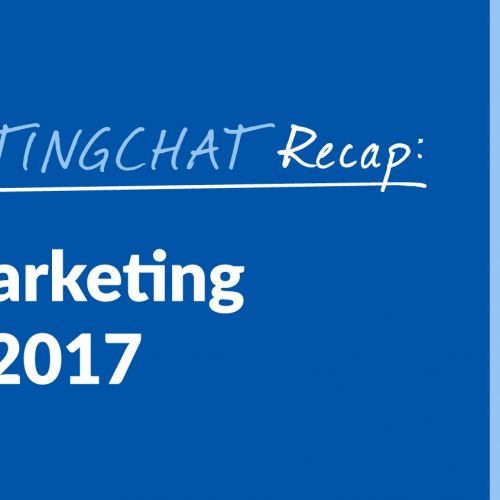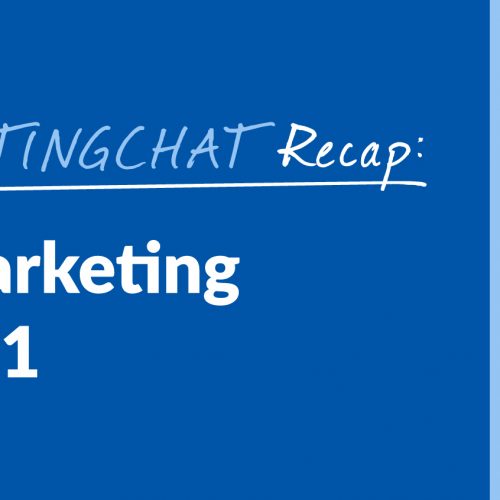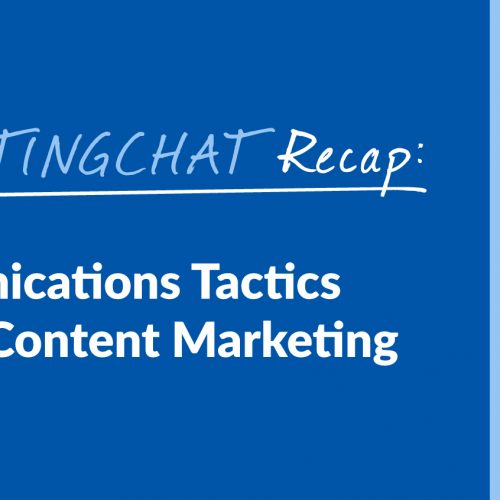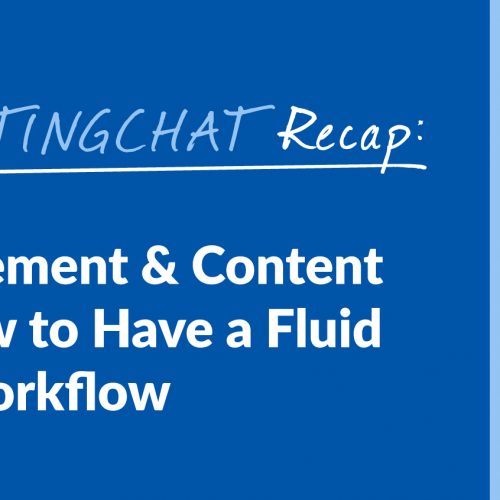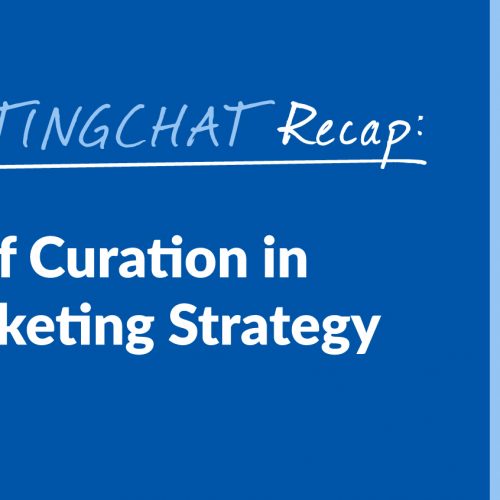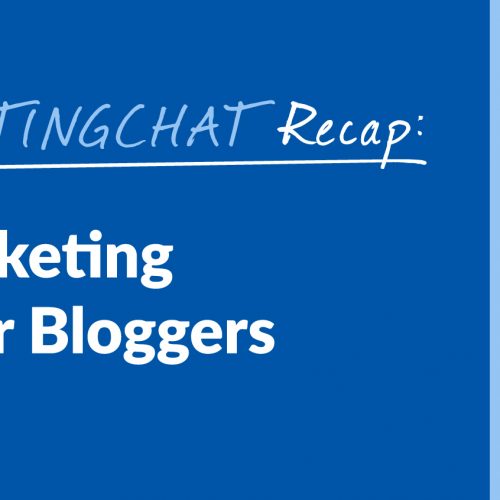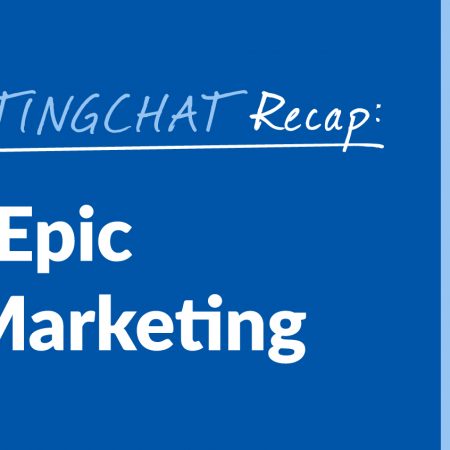#ContentWritingChat Recap: Content Marketing Trends for 2017 with Dennis Shiao
Are you up-to-date on all the latest content marketing trends? In this week’s #ContentWritingChat, we shared all the hottest tips and trends you need to know for a successful content marketing strategy. Does that sound like just what your brand needs right now? Keep reading for the recap of our latest chat! It’s filled with some amazing advice that you’ll want to implement ASAP! #ContentWritingChat Recap: Content Marketing Trends for 2017 with Dennis Shiao Welcome to #ContentWritingChat! Today, @dshiao is guest hosting to talk all about #ContentMarketing trends for 2017! ? pic.twitter.com/XE2IElvhdf — Express Writers (@ExpWriters) August 29, 2017 Our guest host this week was Dennis Shiao. Dennis handles content marketing at DNN Software. He shared some great tips with us throughout the chat, which you won’t want to miss! Let’s dive into the recap for everything you need to know on content marketing trends for 2017. Q1: Why is it important to keep an eye on content marketing trends? How can it impact us as creators? Not feeling convinced that you should be keeping up with the latest when it comes to content marketing trends? These tweets will show you why it’s important for all content creators: A1 Watching trends help you plan strategy. Sometimes you ride the trend, other times you might go the other way #contentwritingchat — Dennis Shiao ✍️ (@dshiao) August 29, 2017 A1b Sometimes, understanding the current trends can give you ideas on how to start a new one. #contentwritingchat — Dennis Shiao ✍️ (@dshiao) August 29, 2017 Keeping an eye on the trends will help you plan your strategy. As Dennis mentioned, sometimes you ride the trend and sometimes you go the other way. When you understand the current content marketing trends, it can even give you ideas on how to start a new one. A1c General advice – don’t follow trends just to follow them. Most people do that. There’s value in being different #contentwritingchat — Dennis Shiao ✍️ (@dshiao) August 29, 2017 His general advice is not to follow just just follow them. Dennis feels there’s value in being different, so make sure you embrace that. A1 Knowing trends = VITAL to content creators. By staying up on platform/tool/SEO changes, we serve our clients best #ContentWritingchat — Julia McCoy ? (@JuliaEMcCoy) August 29, 2017 Julia knows that knowing the latest trends is essential for content creators. You want to stay updated on the platforms, tools, and SEO to better serve your clients. A1: #contentmarketing is always evolving so as creators, we have to evolve with the market to appeal to our audience. #ContentWritingChat — Flying Cork (@flyingcorkpgh) August 29, 2017 Content marketing is something that is constantly evolving and you need to keep up to appeal to your audience. A1. Staying on top of trends and changes in our industry keeps our content fresh and relevant. #contentwritingchat — Bourbon & Honey (@BrittanyBrander) August 29, 2017 Being aware of trends also helps keep your content fresh and relevant. A1: Keeping up on trends helps show clients that you stay on top of things! #contentwritingchat — Netvantage Marketing (@netvantage) August 29, 2017 As Lexie said, knowing the trends shows your clients that you stay on top of all the latest information. It’s going to help them see that you really know your stuff! A1b: When you monitor marketing trends it means you always have something to test. And everyone should be testing! #ContentWritingChat — Maureen Jann (@MaureenOnPoint) August 29, 2017 Maureen brought up a great point about testing. When you monitor and try out new trends, you can test to see how it works for you. You’ll know what’s the right fit for your brand and your audience. A1: Part of reflecting and planning your future growth is looking at the past and present state of marketing. #ContentWritingChat — Ray Sidney-Smith (@w3consulting) August 29, 2017 As Ray said, part of reflecting and planning your future growth is looking at the past and present when it comes to content marketing. It’s important to reflect to see where things have been, where they’re going, and how you can adapt. Q2: What have been the top content marketing trends to implement into your strategy so far this year? Have there been any game-changing trends you implemented into your strategy this year? Our chat participants shared a few that were essential for them to incorporate: A2 My belief is that high quality wins. So I’ve been publishing less, but trying to do it better. #contentwritingchat — Dennis Shiao ✍️ (@dshiao) August 29, 2017 For Dennis, he knows that high-quality content is a clear winner. He’s been focusing on publishing less, but striving to produce even better content. A2: At Netvantage, we’ve continued on with the trend of less is more. Creating less content, but ensuring quality. #contentwritingchat — Netvantage Marketing (@netvantage) August 29, 2017 The team at Netvantage is doing the same. Quality always beats quantity when it comes to the content you’re producing. A2 We’re committed to surfacing content ideas from our existing customers instead of leading with guesswork. #ContentWritingChat — Bill Skowronski (@BillSkowronski) August 29, 2017 When you’re creating content, you also need to deliver what your audience wants. Bill is committed to focusing on his existing customers and learning what they need, instead of guessing on what he should be creating. A2. Recycling content and iterating on what works. Embracing and testing new content formats (audio/podcasting, etc.) #contentwritingchat — Kristen Dunleavy (@KristenWritesIt) August 29, 2017 Kristen knows that recycling content is a big trend that is really paying off these days. It helps you make the most of what you’ve published in the past. She also said testing new content formats, such as podcasts, is also beneficial. A2d The other clear trend is podcasting. I haven’t started my own just yet. But I listen to a lot! #contentwritingchat — Dennis Shiao ✍️ (@dshiao) August 29, 2017 Even Dennis knows podcasting is a trend that’s still on the rise! Although he hasn’t started one of … Read more
